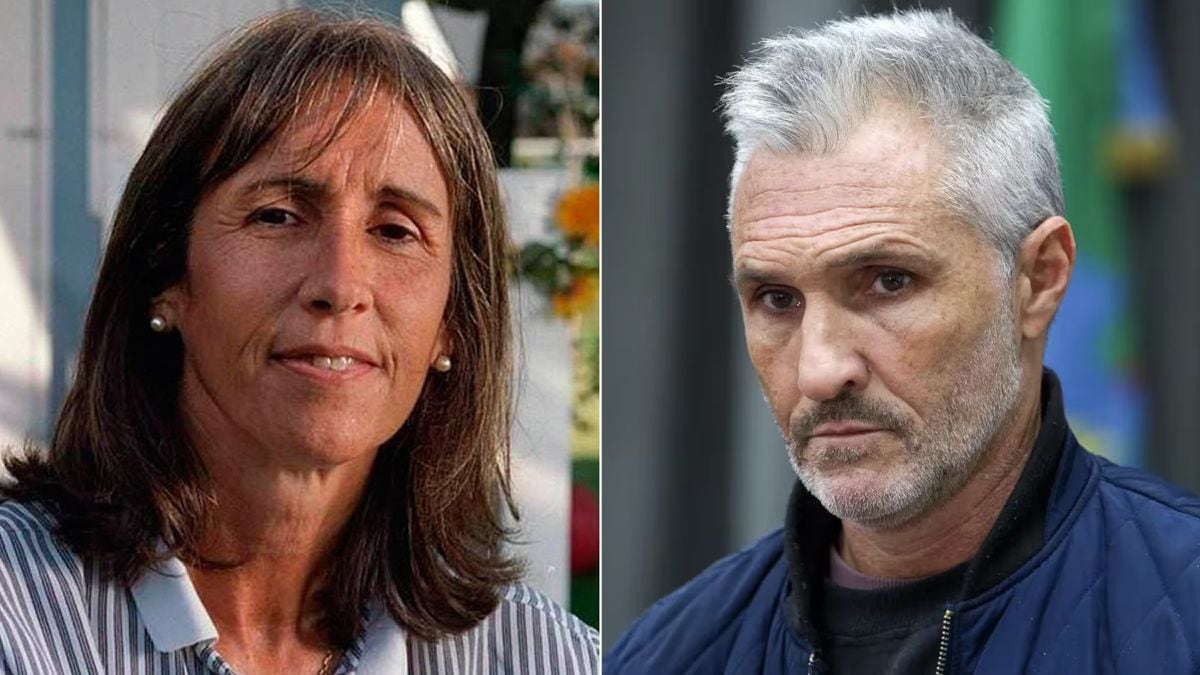The murder of María Marta García Belsunce, a crime that has kept Argentines in suspense for more than 20 years, seems to have finally found an end point. A Court of Cassation of Buenos Aires, the highest court of criminal appeal, has found Nicolás Pachelo, a resident of Belsunce in Carmel, a private neighborhood on the outskirts of the Argentine capital where she was murdered, guilty of the murder. Pachelo, who had been acquitted of the crime in December 2022, was sentenced this Wednesday to life imprisonment after a review of that ruling. He can still appeal the decision to the Supreme Court, but his conviction closes a mystery that dominated news from the beginning of the century until the coronavirus pandemic, and that went around the world in documentary series on Netflix and HBO.
García Belsunce, a 50-year-old sociologist and wife of a merchant mariner who made money as a financier, was found dead in the bathroom of her home on October 27, 2002. Neither the doctors who certified her death, nor the funeral home that signed her death As a result of a domestic accident, they then saw what the prosecution discovered almost two months after the funeral: García Belsunce had not hit the back of his head in the bathroom, but rather had been shot five times in the head. His body was exhumed after his half-brother, Juan Hurtig, approached the prosecutor's office two weeks after the burial to say that he had found a “pituto” (a small piece of metal) at the crime scene and that he had thrown it away. to the toilet wrapped in toilet paper. The “pituto” in question was a 32 caliber bullet that he had not hit the target.
When the bullet was recovered from the house's sewage chamber and the autopsy found five other projectiles buried in García Belsunce's skull, a scandal broke out. In January 2003, the prosecutor ordered an investigation into her husband, Carlos Carrascosa, whom she accused of a crime of passion. She later accused García Belsunce's brothers, whom she accused of covering up. Neighbors, friends, family, and even García Belsunce's masseuse and doctor were investigated for years. In 2007, Carrascosa was sentenced to five years in prison for covering up the murder, and two years later another court gave him life for the murder. The widower spent five years in prison and two in house arrest, until the Supreme Court ordered the Buenos Aires court to review the sentence. Horacio García Belsunce and Juan Hurtig (brother and stepbrother of the woman) were convicted of covering up the crime in 2011 and a court acquitted them due to the statute of limitations in 2020. The crime went unpunished, but the family then targeted an unfriendly neighbor, Nicolás Pachelo.
Pachelo, a neighbor of Carrascosa and García Belsunce in the Carmel neighborhood, was summoned for investigation at the end of 2017 by the new prosecutors in the case. The hypothesis that drove the investigation was that he had entered the house to rob, with the complicity of two neighborhood watchmen, and that he murdered Belsunce when he found her inside it. Pachelo, now 47 years old, had other problems with the law. In 2005, a court in the City of Buenos Aires sentenced him to three years in prison for robbing friends' houses. In 2018, while he was being investigated for the Belsunce case, another prosecutor charged him with six robberies in other private neighborhoods in the north of Buenos Aires.
In December 2022, more than 20 years after the murder, Pachelo was found guilty of these robberies and sentenced to nine years in prison, but he pleaded not guilty to the murder of Belsunce. “I have been waiting for this moment for 20 years to be in front of my wife's murderer,” Carrascosa said in one of the trial hearings. “What keeps me alive is knowing who killed her. I no longer have anything to do in life,” added the widower while he pointed his finger at Pachelo, who watched him with his arms crossed from the dock. The divided court ended up acquitting him of the murder.
Pachelo had an alibi that was rejected in the appeals court ruling this Wednesday. According to Pachelo, on the day of the murder he had left the neighborhood around five in the afternoon, more than an hour before the time of García Belsunce's death, and at seven in the afternoon he had met his mother to walk through a shopping center. of the city of Buenos Aires. His defense even presented the receipt for a purchase they made at 7:40 p.m. on October 17. Two call records that the judges now reviewed contradict this: at seven in the afternoon that day, Pachelo called his mother (according to prosecutors, he did so to coordinate the alibi), and around seven-thirty he received another one. Both were registered from the municipality of Pilar, where the Carmel neighborhood is located, more than an hour by car from the shopping center where Pachelo claimed to have spent that afternoon.
“It was what I expected, it was the debt I had with María,” the widower, Carlos Carrascosa, said this Wednesday when asked by the newspaper. The nation. “I believe that, due to the persecution we suffered as a family, María never got to rest in peace. I still miss María like every day. She wanted to know who the murderer was and she succeeded.” After three trials, convictions and acquittals, Pachelo will serve a life sentence. The story, however, seems to have no end: he may appeal to the Supreme Court, the same court that at the time overturned Carrascosa's own conviction.
Subscribe here to the EL PAÍS América newsletter and receive all the key information on current events in the region.
#Justice #puts #39Belsunce #case39 #media #murder #century #Argentina

Leave a Reply